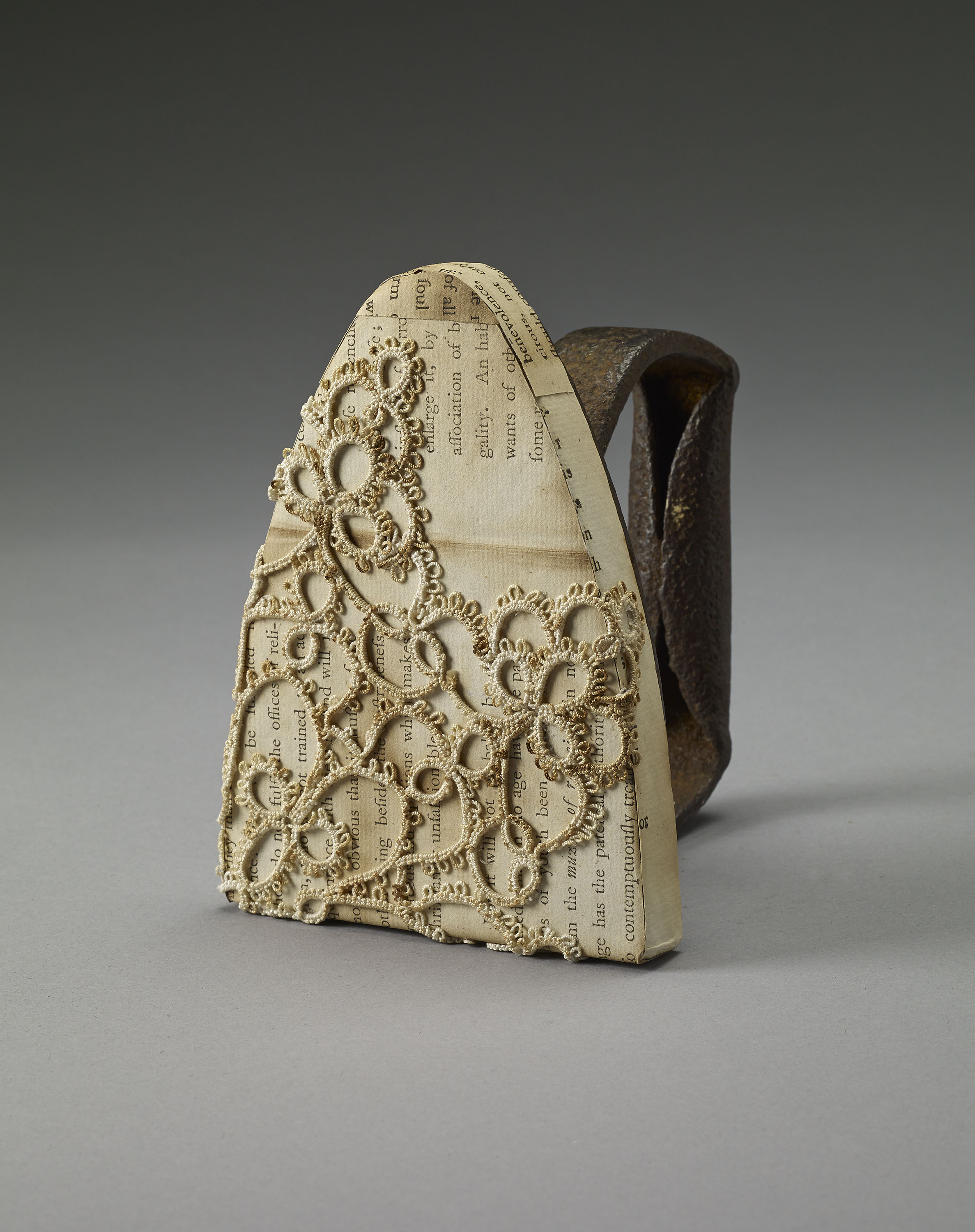





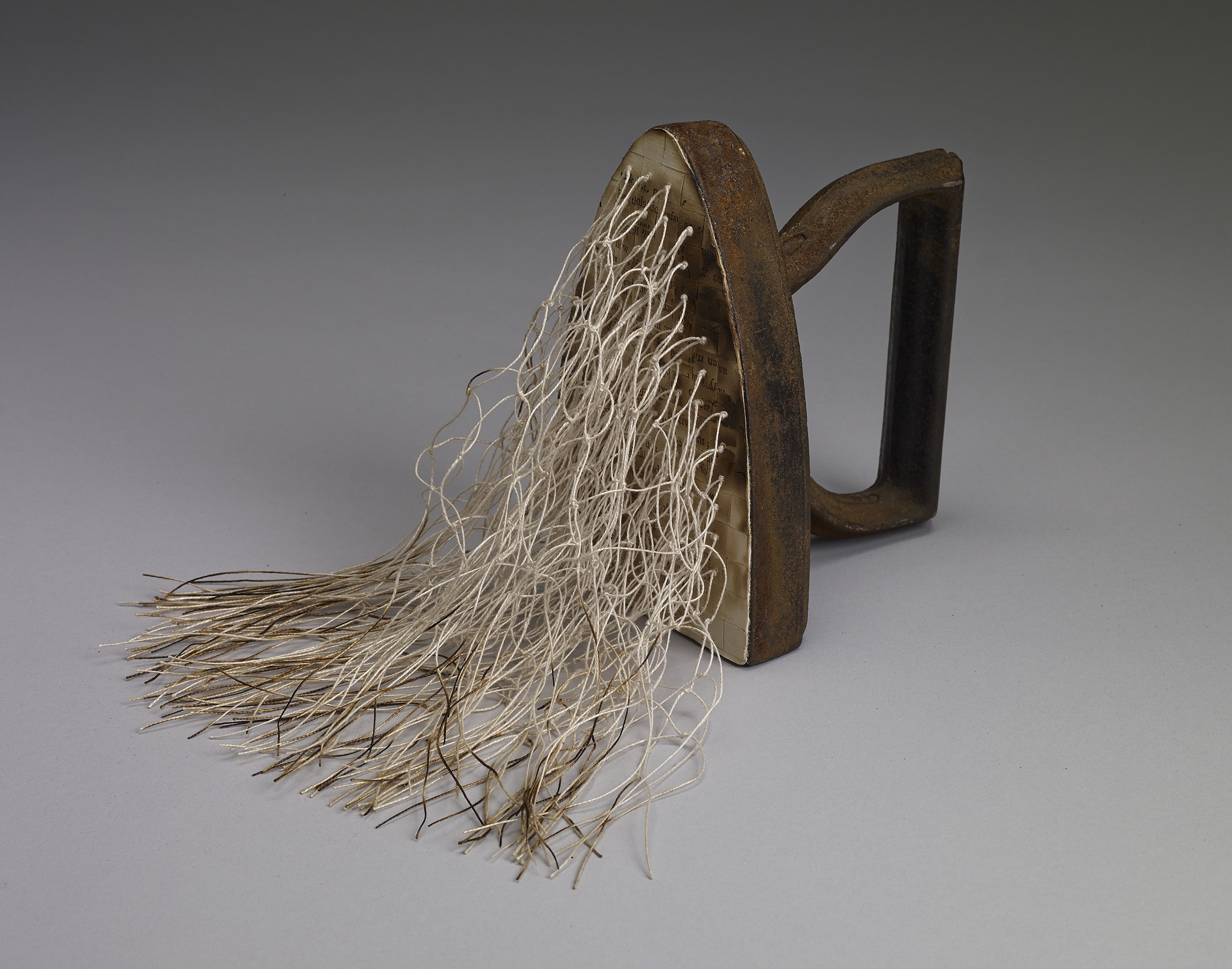
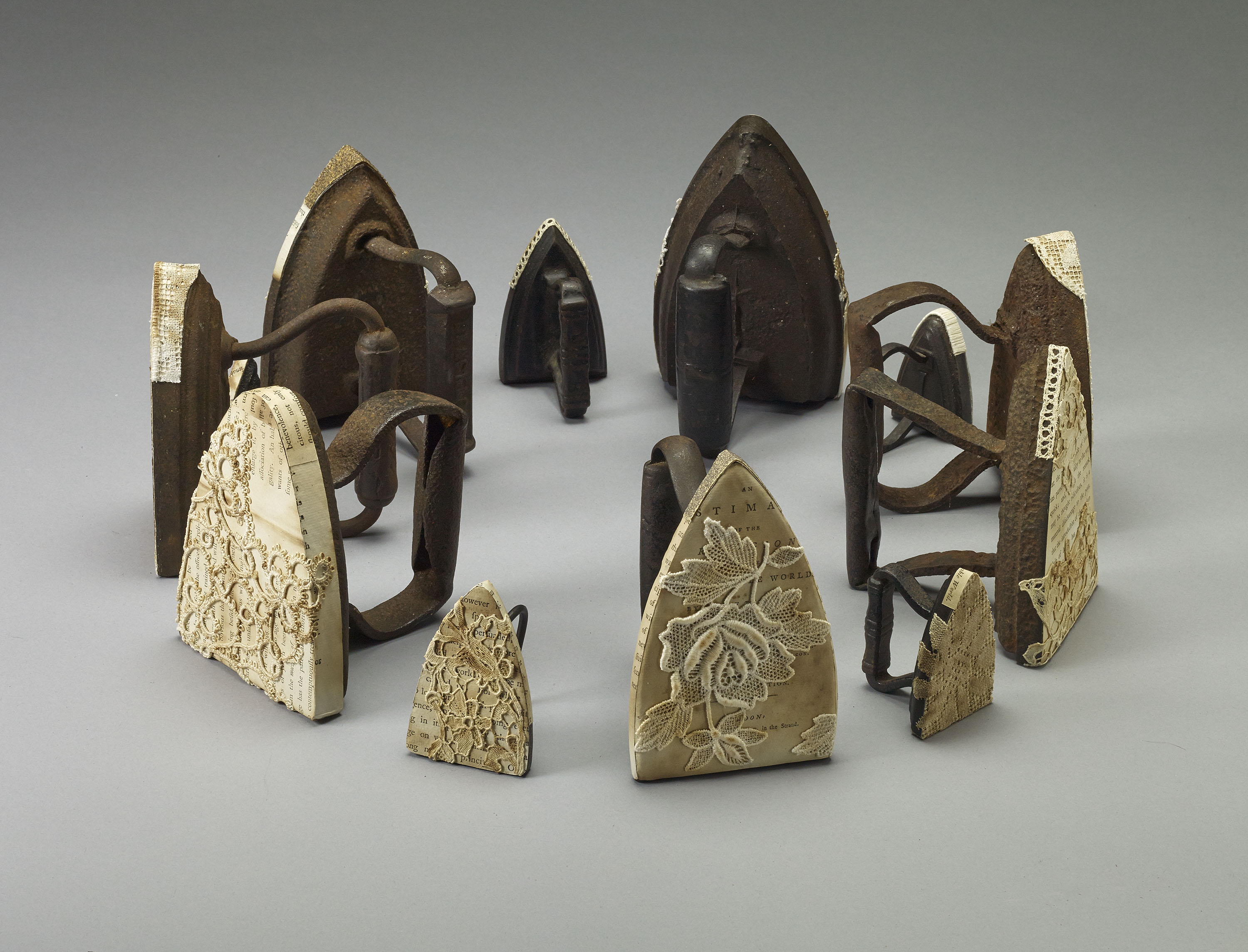
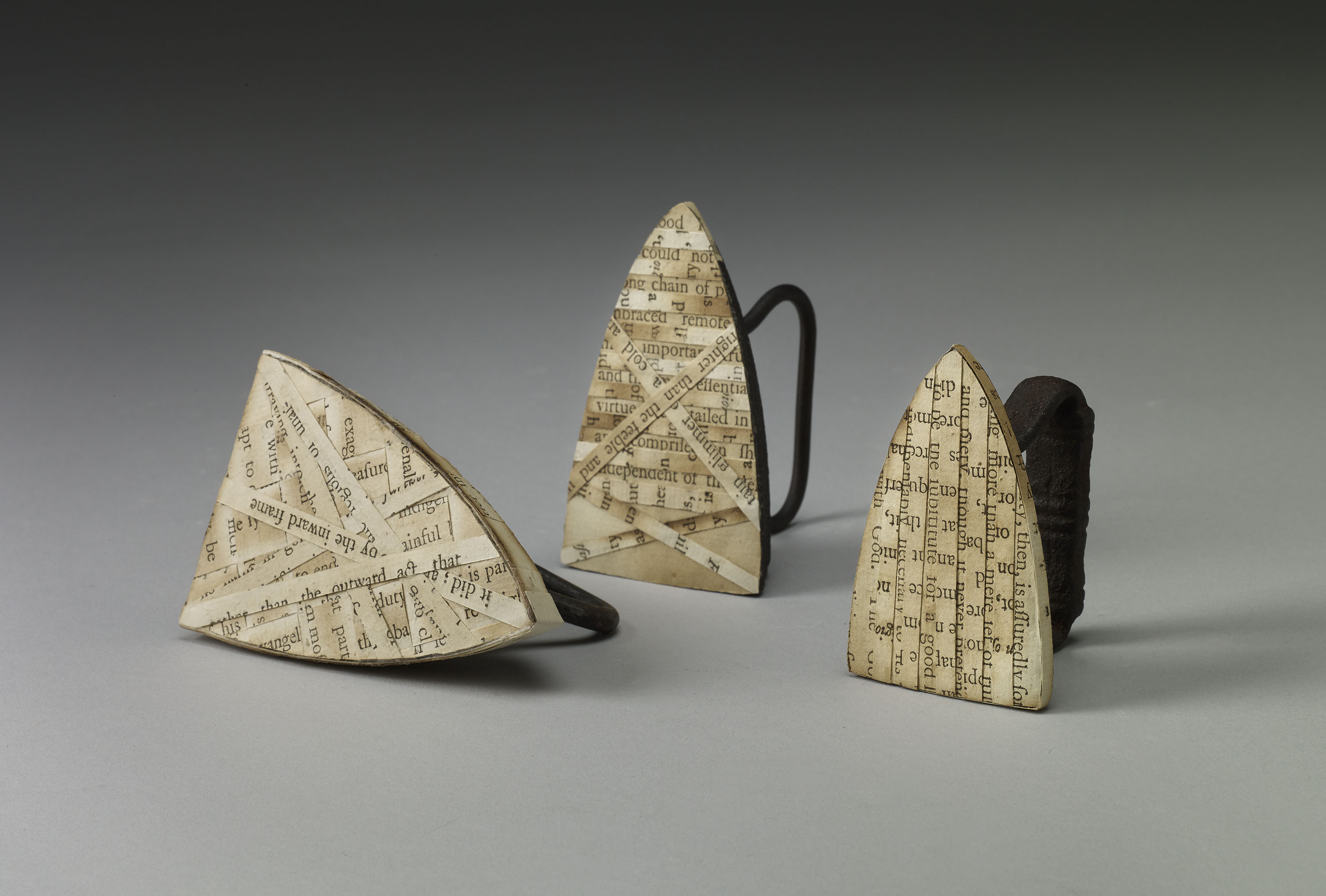
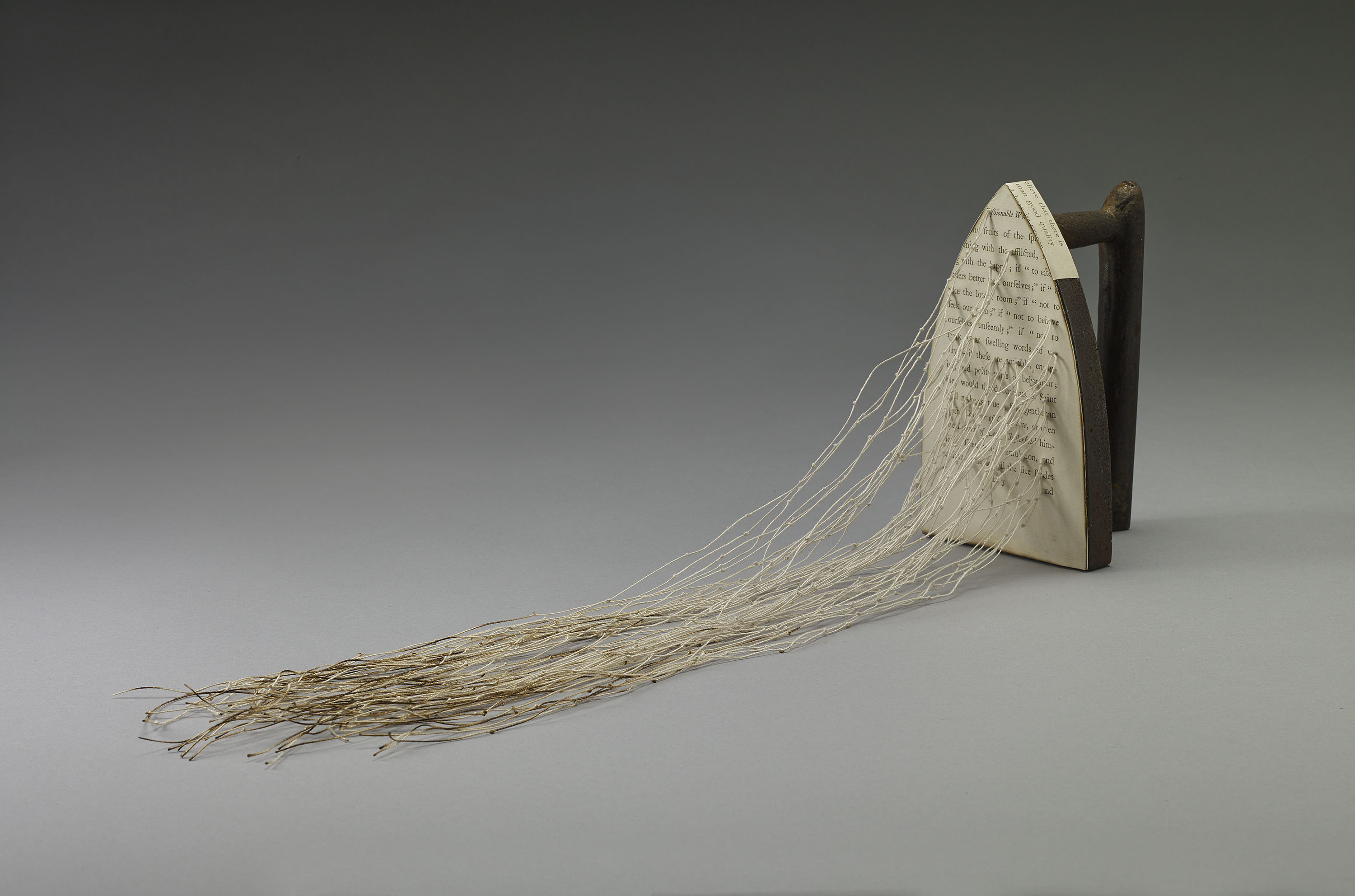


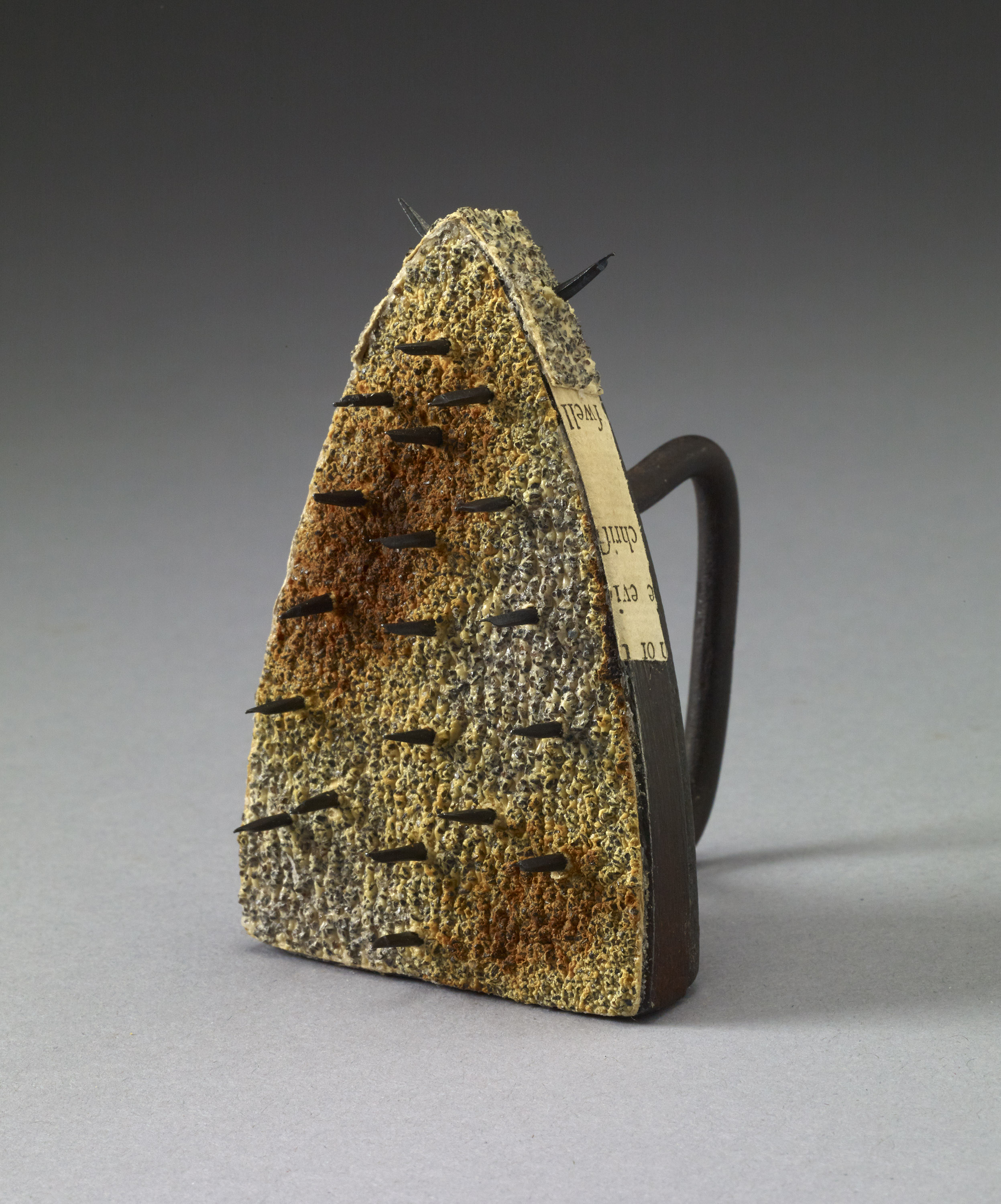

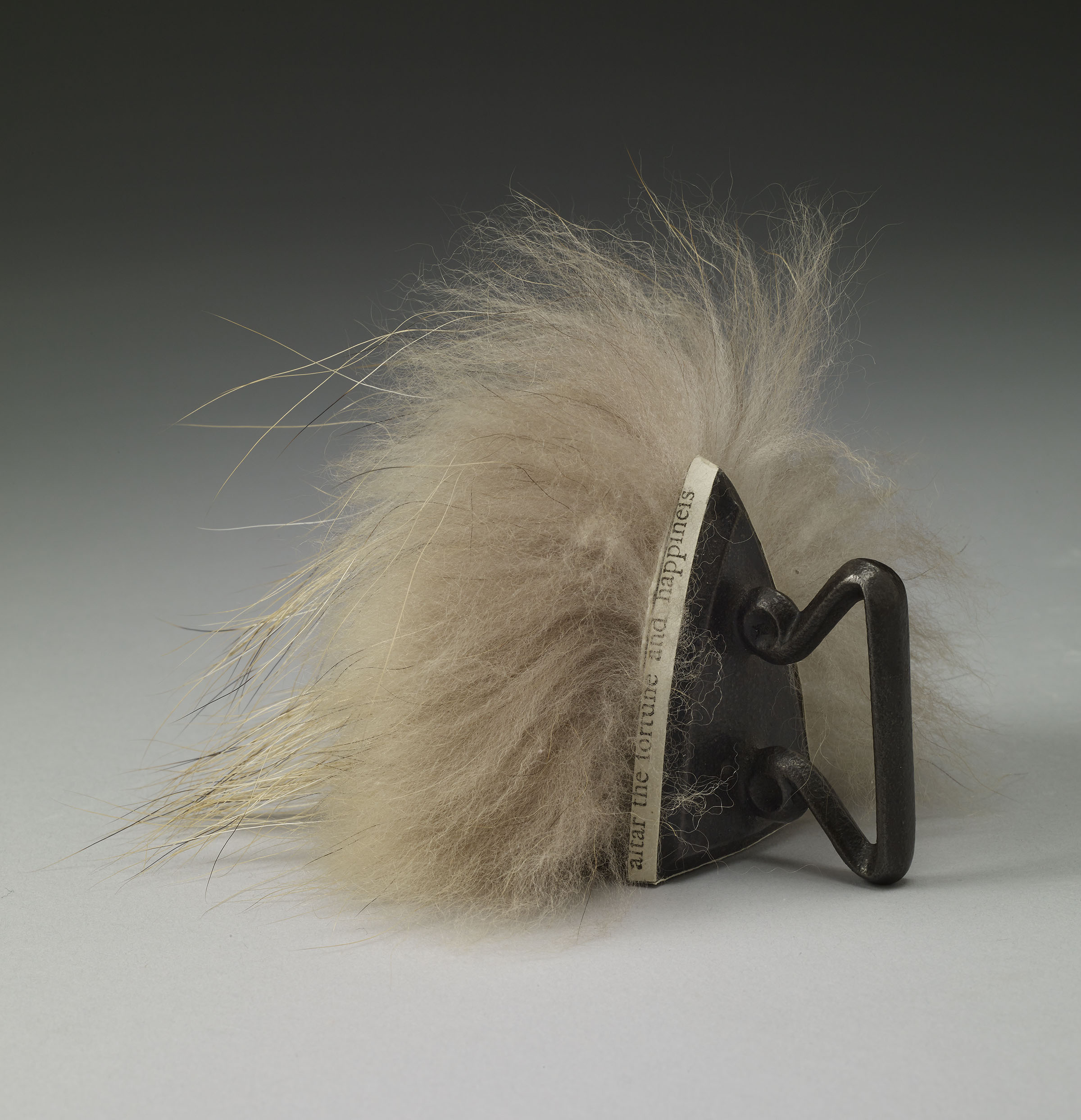
Pressing On – Homage to Hannah More
Pressing On takes physical, material, and intellectual inspiration from Hannah More's An Estimate of the Religion of the Fashionable World: By One of the Laity, London, 1791. Published anonymously, it was one of the most widely read books of the day.
Pages of Hannah More's writings are cut, scorched, woven and layered with textiles, thread, lace, sandpaper and fur. Antique “sad” (solid) irons convey the stories, presented singly or installed as multiples, evoking the tactile, experiential memory of a domestic labor force. The sad irons represent the erstwhile servitude of those pressing, the 'herstories' of those laboring under the demands for pressed garments and linens, to suit class distinctions and societal expectations. Garments carefully and repetitively manipulated, aided by the parallel tasks of mending and sewing were ultimately to be transformed by the applied and consistent heat and pressure.
Hannah More (1745 – 1833) was an abolitionist, poet, social reformer, philanthropist, feminist, writer and a member of the intellectual group “Bluestockings” along with Samuel Johnson. She has been referred to as the “First Victorian”, bridging the 18th and 19th centuries. Her writings and benevolence strongly influenced the public mind and social character of her day. Strictures on the Modern System of Female Education, 1799, contained many pro-feminist overtones. More's life-long overriding cause was galvanizing women to act not as domestic ornaments, but as thinking, engaged and responsible beings. She devoted herself to educating and helping the poor, establishing over sixteen charitable schools in the U. K.
Hannah helped give the abolition movement a public voice with her writings. Publishing and collaborating with William Wilberforce, an outspoken member of Parliament, she remained active in the anti-slavery movement her entire life. Her poem Slavery published in 1788 coincided with the first parliamentary debate on slave trade. More wrote The Sorrows of Yamba (or The Negro Woman's Lamentation) in 1795. Dying in September of 1833, she lived just long enough to see slavery abolished in the British Empire. More's fierce convictions were moral, social and political. Writing was an influential tool which she masterfully utilized throughout her life.

"Her juxtaposition of materials, for her PRESSING ON Series, combines artifact, word, and fabric. The hardness of iron, the graciousness of lace, and the wisdom of words combines as a testament to women's tenacious movement forward. PRESSING ON honors abolitionist/feminist Hannah More and integrates history, memory, domesticity and celebrates women's political and public voice."
Mara Mills, Deputy Director, Hudson Valley Museum of Contemporary Art